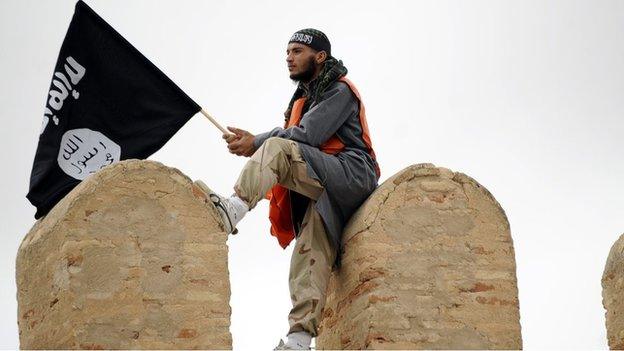Tunisia attacks: 'I thought they were fireworks' - survivors tell their stories
- Published
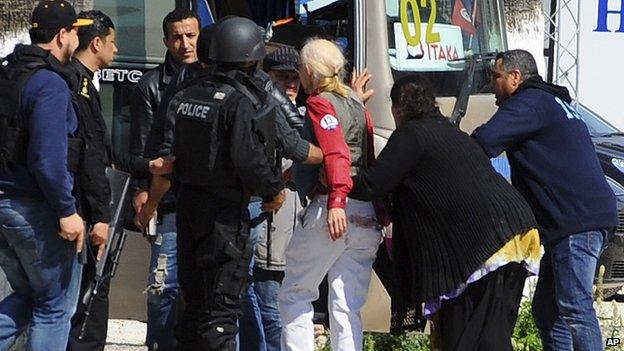
Many of the survivors of Wednesday's attack on the Bardo museum in Tunis - just like most of the 23 people who were killed - were foreign tourists. Several of those who have escaped have given interviews to their national media, describing how the attack unfolded.
Italian, Bruna Scherini who spoke to the TV station Sky Italia from her hospital bed.
"We were looking at the museum, we had entered one of the rooms in the old part of the building looking at the mosaics.
"At a certain moment, I started to, my daughter started to hear shots and everyone started to run. Everyone started to try and save themselves in the best way possible, trying to hide behind the glass windows and in the corners of the room.
"I don't know how long it lasted," she said.
"They [the attackers] came in and sprayed bullets around to intimidate us. My foot is injured and a bullet grazed my thigh. They treated me in hospital and have given me some stitches. Next to me there were two people who didn't move and others who were injured. Everyone was injured. A friend of mine was with me and her little girl, they are ok, they saved themselves. Thank goodness nothing happened to the girl."

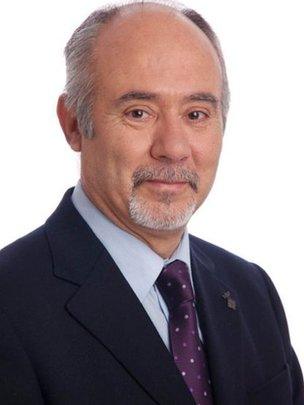
Josep Lluís Cusidó, the mayor of a village in Catalonia, Spain, was also inside the museum when the attack occurred.
"It all happened so fast. The terrorists did not stop shooting. I saw it with my own eyes," he told the Spanish daily El Pais.
"I thought they were fireworks. I looked out the door and there were terrorists, three or four - I don't remember exactly. And I ran, I went up the stairs of the Bardo museum, I saw a door and went on a balcony. I took refuge there with more tourists.
"My wife grabbed a Tunisian woman and they went down to the basement of the museum. She later told me this woman had children with her that wouldn't stop crying. I did not know what happened to my wife until we met up again on the boat [back to Barcelona].
"We hugged each other and everyone on the boat applauded. Today, no doubt, we have been given a new chance to live."

A tour guide called Walid described the moment of the attack.
"They opened [fire] on anything that moved. The choice was to run away or face certain death or injury. I helped my clients find shelter as best I could."

Alberto Di Porto, 71, relayed his experiences to the Italian Corriere Della Sera newspaper. A retired businessman, he had come to Tunisia on a cruise with his wife Anna to celebrate her birthday.
"I owe her my life as always. She takes care of me because I'm very ill. She's a woman who likes to read, she had been very affected by [the recent Islamist attacks] in Paris.
"When we heard the initial gunfire, followed by an explosion from a grenade, I looked out onto the staircase and saw people dressed in police uniforms shooting and advancing on some tourists in my group, who had just entered the museum with me.
"I couldn't understand what was going on. My wife looked at me and said: 'Something is very wrong. We have to hide, like those people in the Jewish shop in Paris.'
"Between two glass cases there was an open window with wooden shutters which were open. We started running when we heard the gunmen coming up the stairs, shooting. My wife told me to keep quiet or they would kill us too.
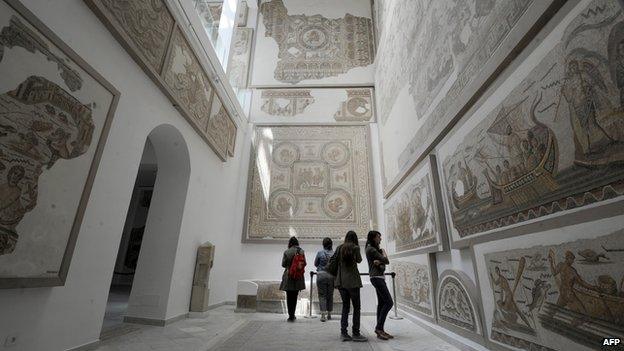
Alberto Di Porto had a degree in archaeology and had been looking forward to his visit to the Bardo Museum
"We crouched on the floor, we were quick to react, thanks to my wife. There were five of us in our party, passengers of the Costa Fascinosa. Then there were also four Japanese and an Italian from another ship, the MSC Splendida. Of course we cried, but we used signs to tell one another to hush up.
"We were lying down, we held hands. An Italian woman inside kept screaming the name of her husband. 'Carlo', she called, 'Carlo'. From a different part of the room he yelled at her to shut up.
"I did not know what to think, I can't explain how I felt. I was just hoping to survive, in one way or another.
"[Tunisian special forces] all had machine guns. They were everywhere, even on the balcony in front of us. One of them made a sign with his hand to get my attention. He pointed at his eyes, and then made a gesture asking what I could see. I looked around. There were at least two people on the ground motionless, and blood everywhere. I could see the legs of some men walking up and down the room.
"I turned and made a gesture of throat-cutting, to let him know that there were dead bodies. He made another sign with his hand to stay down.
"I do not know what hell looks like, but I think it must look a lot like what happened there.
"[The special forces started shooting] from above, from below, from within, from the stairs. A grenade exploded near us, I felt that everything inside was collapsing, people screaming, and then nothing.
"This world of ours is becoming a place that is unnecessarily stupid and bad."

The blogger and activist Farouk Ali, who was near the museum at the time of the attack, told the BBC what he witnessed:
"I wanted to meet my friend who lives in that area, Bardo, for a coffee. I heard the shooting, so I ran like everyone else. We didn't see any terrorists. The police came, and the military. And that friend of mine, he called me from inside the museum and told me that there were terrorists inside the museum. There were people who were dead or injured.
"It was a shock, but we Tunisians are so strong and we will not be made afraid by something like that. Right now we are more solid and we will make our country safe - and we will defend our country whatever it takes to destroy terrorism."

A French survivor, Marie-Josée, spoke to French TV network RTL. She spent a long period inside the museum, unable to move.
"To begin with, we thought a statue had fallen over. Then we heard cries and realised that what we could hear were gunshots. We did not know what to do.
"We stayed about an hour until the police got involved."

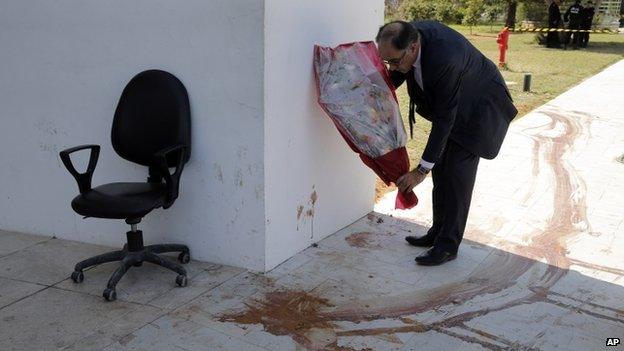
A Tunisian member of parliament lays flowers next to a a blood stain at the Bardo museum
One of three Japanese people injured in the attack, Noriko Yuki, was interviewed by the Japanese broadcaster NHK.
"(We) heard sounds of gunshots from outside, and I was told by a guide to move from a room (of the museum). Then we heard gunshots from behind, everybody started running, we fell over and were shot.
"I was crouching down, putting my hands on my head. Then I was shot in the ear, neck and hand.
"My mother was shot in the neck. She couldn't move by herself when the police came."

Belgian tourist Josefa Timperman Heverlee was on a guided tour of the museum when she heard shots.
"Suddenly we heard gunshots but the guide said that nothing was going on. Then we heard shots again but this time much closer.
"Someone from the museum came into our hall and the door was locked. We also had to lie on the ground.
"[Tunisian special forces] thought at first that we were terrorists. I saw the fear in their eyes. When they saw that we were tourists, they freed us.
"On the bus next to me sat a Chinese girl whose sister had just been shot in the head. Another woman said that her husband had received a bullet in the knee. Another told me that his wife had been shot.
"It is only afterwards that you realise that you escaped."

- Published18 March 2015
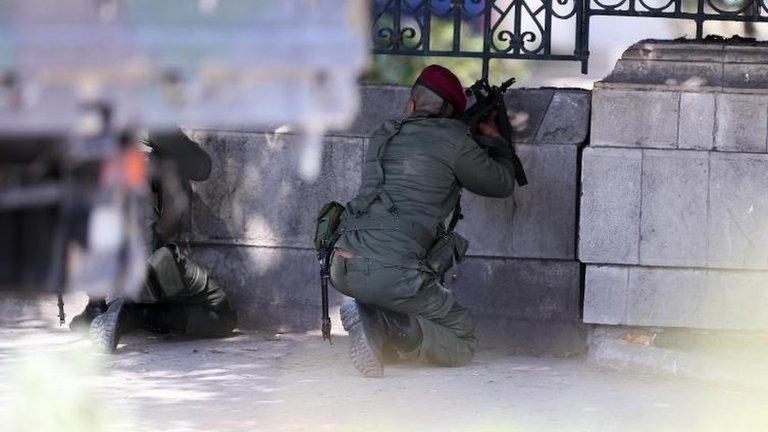
- Published19 March 2015
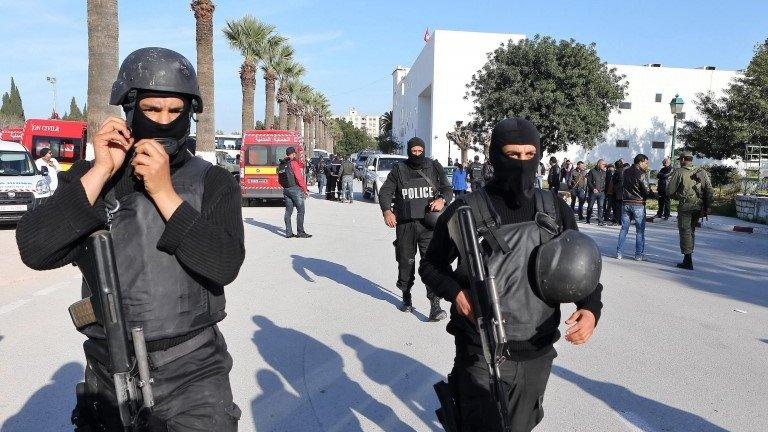
- Published19 March 2015
